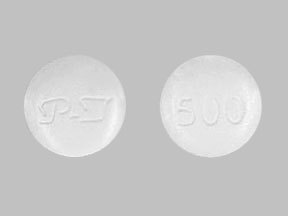
Neomycin Coupons & Savings Card – Discount Prices from $22.70
Neomycin is an oral antibiotic used primarily to reduce the risk of infections following certain intestinal surgeries and to manage hepatic encephalopathy, a serious condition affecting the brain due to liver problems. This medication belongs to the aminoglycoside class, which works by inhibiting the growth of bacteria in the intestines. In the context of hepatic encephalopathy, neomycin helps by eliminating bacteria that produce ammonia, a substance that can accumulate in the body when the liver is not functioning properly. It is crucial to use neomycin precisely as prescribed, as prolonged use can lead to significant side effects, including kidney, nerve, and hearing issues. Neomycin targets only bacterial infections and is ineffective against viral infections. Misuse may result in decreased effectiveness of antibiotics in the future. Always consult a healthcare provider for advice tailored to your health needs before using this medication.
Our coupons are free to use. Before paying, show the pharmacist your Neomycin savings card to get your free discount. Use our filters below to edit the prescription box to match your needs. The Neomycin prices will update based on your prescription needs. Above our Neomycin coupons, you can change your location to see pharmacy prices and costs in other areas. We're here to help you buy Neomycin at the lowest price with our prescription discount card.
My prescription
Edit
500MG, Neomycin (28 Tablets)
Select pharmacy

CVS
$25.88
COUPON PRICE
Walgreens
$22.70
COUPON PRICE
Albertsons
$27.95
COUPON PRICE
Walmart
$28.32
COUPON PRICENeomycin savings card
Show this card to your pharmacist
Walgreens
$22.70
BIN
ID
PCN
GRP
015995
LHKPW913527
GDC
DR33
Powered by
Neomycin is an oral antibiotic used primarily to reduce the risk of infections following certain intestinal surgeries and to manage hepatic encephalopathy, a serious condition affecting the brain due to liver problems. This medication belongs to the aminoglycoside class, which works by inhibiting the growth of bacteria in the intestines. In the context of hepatic encephalopathy, neomycin helps by eliminating bacteria that produce ammonia, a substance that can accumulate in the body when the liver is not functioning properly. It is crucial to use neomycin precisely as prescribed, as prolonged use can lead to significant side effects, including kidney, nerve, and hearing issues. Neomycin targets only bacterial infections and is ineffective against viral infections. Misuse may result in decreased effectiveness of antibiotics in the future. Always consult a healthcare provider for advice tailored to your health needs before using this medication.
Our coupons are free to use. Before paying, show the pharmacist your Neomycin savings card to get your free discount. Use our filters below to edit the prescription box to match your needs. The Neomycin prices will update based on your prescription needs. Above our Neomycin coupons, you can change your location to see pharmacy prices and costs in other areas. We're here to help you buy Neomycin at the lowest price with our prescription discount card.
Related aminoglycoside antibiotics prescriptions
More prescriptions for hepatic encephalopathy
coupons from$5.51Save 81%
coupons from$2637.78Save 17%
coupons from$5.51Save 81%
coupons from$2.68Save 82%
coupons from$2.68Save 82%
coupons from$772.70Save 72%
coupons from$237.46Save 28%
Related aminoglycoside antibiotics prescriptions
Tobrex Save -1085%coupons from $300.42
Arikayce Save 71%coupons from $606.69
Tobi Save 79%coupons from $15.05
Bethkis Save 87%coupons from $29.93
More prescriptions for hepatic encephalopathy
Enulose Save 81%coupons from $5.51
Xifaxan Save 17%coupons from $2637.78
Generlac Save 81%coupons from $5.51
Lactulose Save 82%coupons from $2.68
Constulose Save 82%coupons from $2.68
Rifaximin Save 72%coupons from $772.70
Kristalose Save 28%coupons from $237.46
Neomycin dosage forms
Use our Neomycin 500MG coupon with prices from $25.88 for 28 Tablets. You can also use our Neomycin 500MG coupon with prices from $3.42 for 1 Tablet. We have a Neomycin 500MG coupon with prices from $42.67 for 90 Tablets. You can use our Neomycin 500MG coupon with prices from $45.38 for 100 Tablets.
Dosage Quantity Price from Per unit 500MG 28 Tablets $25.88 $0.92 500MG 1 Tablet $3.42 $3.42 500MG 90 Tablets $42.67 $0.47 500MG 100 Tablets $45.38 $0.45
| Dosage | Quantity | Price from | Per unit |
|---|---|---|---|
| 500MG | 28 Tablets | $25.88 | $0.92 |
| 500MG | 1 Tablet | $3.42 | $3.42 |
| 500MG | 90 Tablets | $42.67 | $0.47 |
| 500MG | 100 Tablets | $45.38 | $0.45 |
